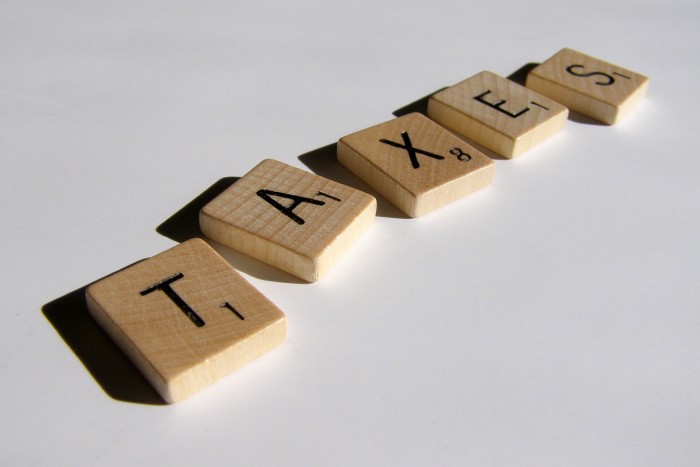- Life Insurance
- Income Protection
- Superannuation
- Superannuation Insurance
- Super Fund Income Protection
- SMSF Insurance
- SMSF Life Insurance
- SMSF Income Protection
- Wealth Smart’s Superannuation Employer Contribution Solutions
- Super Centre
- Consolidating Your Super
- What is Super?
- Salary Sacrificing Super
- Concessional contributions cap
- Your Investment Strategy
- Our Solutions
- Corporate Employee Solutions
- Private Client Solutions
- General Insurance
- Resources
- Insurers
- Contact
- Superannuation Insurance
- Super Fund Income Protection
- SMSF Insurance
- SMSF Life Insurance
- SMSF Income Protection
- Wealth Smart’s Superannuation Employer Contribution Solutions
- Super Centre
- Consolidating Your Super
- What is Super?
- Salary Sacrificing Super
- Concessional contributions cap
- Your Investment Strategy
- Our Solutions
- Corporate Employee Solutions
- Private Client Solutions
Recent Posts
Categories

What is salary sacrifice into Super and how does it benefit you?
How It All Works
Superannuation is the money you’ve put aside throughout your life to use in your retirement. You would have heard of it, and like most Australians, you’ve probably got it.
But also like many Australians, you may have little idea what your super does for you – and how it works.
Since it’s often your employers who contribute to your superannuation (unless you’re self-employed, non-employed or have a self-managed super fund), you don’t have to pay much heed to the taxation of your super fund accounts.
You might think it’s wise to stay away; superannuation tax can be a muddled and confusing affair. But it’s always worthwhile knowing where your money is going and what’s happening to it when it’s out of sight.
If you’re an employer, self-employed or trustee of a SMSF, it’s especially important you’re aware of the relationship between the Australian Taxation Office and your super fund. But what do you need to know?
Superannuation is generally taxed at a lower rate than your regular income so that you’re tempted to tuck more money away for later. But it’s a lot more complex than that. Read our guide into super tax below.
The 3 stages of superannuation tax

Photo credit: Chris Potter
The super system is split into two phases:
Accumulation
The accumulation phase is when you’re still contributing to your fund and building up your retirement savings. You haven’t yet withdrawn any super benefit or started a super income stream.
Pension
The pension phase is when you use your superannuation for its purpose: helping to support you during retirement. At this point, you’ll have commenced an income stream, or pension, from your fund.
So far it’s pretty straight-forward. But in fact, your super is taxed at 3 crucial stages:
- When you make contribution
- When your super earns an income
- When you begin receiving super benefits
Making contributions
Making contributions sits in the accumulation phase and is usually the longest stage of your super fund life. These contributions typically begin with your first employer or self-employed job and last up until your retirement, as long as you remain employed.
There are several different kinds of contributions you can make to your super and, of course, each one faces difference taxation requirements:
Concessional contributions
Your super fund pays up to 15% tax on pre-tax concessional contributions. There are a few kinds of these:
Superannuation Guarantee
If you have an employer, they are required to contribute the equivalent of 9.5% of your salary to your super account. They then receive a tax deduction for the contributions.
Salary sacrificing
You can arrange for your employer to channel some of your pre-tax salary into your super as voluntary contributions. Your super fund then deducts 15% as a contributions tax (instead of the government imposing the marginal tax rate on that amount as assessable income). Again your employer will receive a tax deduction for the contribution.
Tax-deductible contributions for the self-employed or non-employed
If you’re self-employed or not working, you can add tax-deductible contributions to your super account. You are also eligible if you are employed, but receive less than 10% of your total income (plus your super contributions and fringe benefits) from an employer.
Non-concessional contributions
If you make contributions to your super with money that’s already been taxed, you’re making a non-concessional contribution. Since this contribution has already been hit with the income tax, it is exempt from the 15% super tax.
You also won’t have to pay tax when you’re transferring money from one super fund to another.
Low Income Super Contribution
Even better, up until 2017 if you earn less than $37,000, you could be eligible to receive a tax-free bonus, called a co-contribution, from the government. This is a kind of refund on the tax taken from your concessional contributions and will be added straight back into your super account.
High income earners
Those lucky few earning more than $300,000 (including your super contributions) may find they face an additional contributions tax of 15%, bringing the tax total up to 30%.
Excess contributions tax
Everybody has a concessional contributions cap. And if you exceed this cap, you face certain penalties, including a potential excess contributions tax. You will also face an interest charge and may need to withdraw your excess contributions from your fund.
Super earnings
As your super fund invests, it will accrue earnings. Your contributions are just one aspect of these earnings. Other earnings include investment earnings, such as dividends and the sale of fund assets.
Income earned through dividends and contributions is subject to a maximum tax of 15%.
Tax on capital gains – those earnings from the sale of assets – differs depending on how long you have held the asset. If you’ve had it for over 12 months, your fund only pays tax on two thirds of the earning at a tax rate of 10%.
Super benefits
In the final stage of the life of your superannuation, you enjoy all the rewards of a lifetime’s hard work. This is when you can enjoy an income stream from your super or withdraw part of it as a lump sum.

Photo credit: American Advisors Group
Depending on your circumstances, it might not be your wisest choice to withdraw chunks of your super at a time; speak to a financial adviser to learn about your best options.
Over 60 years old (or your “preservation age”)
Hitting retirement is a huge event to celebrate, which may be why the ATO usually makes tax-free any super benefits you receive after you’ve hit your “preservation age” (which is dependent on your year of birth – see the table below) and have retired.
If you are still working at 60 years old, there will be tax implications to access your funds. The 15% tax on contributions will also still apply.
But at 65 (as it currently stands), you can access your super with ‘nil cashing restrictions’ – that is, no tax payable on withdrawals.
These are the current preservation ages:
| Date of Birth | Preservation Age |
|---|---|
| Before 1 July 1960 | 55 |
| 1 July 1960-30 June 1961 | 56 |
| 1 July 1961-30 June 1962 | 57 |
| 1 July 1962-30 June 1963 | 58 |
| 1 July 1963-30 June 1964 | 59 |
| From 1 July 1964 | 60 |
Under 60 years old (or your “preservation age”)
If you’re lucky enough to be able to retire before your preservation age, you may have to pay tax on your super income, since it is considered an assessable income. It will be assessed at your marginal rate, plus the Medicare levy. But keep your eyes peeled; you could qualify for a 15% tax offset.
It’s different again if you withdraw a lump sum and you are under your preservation age. You can withdraw up to the low rate threshold (which currently sits at $185,000) tax-free. Beyond this sum, any amount will be taxed 17% (including the Medicare Levy), or your marginal tax rate if it is lower.
Check out ASIC’s MoneySmart website it you want to know more.
Untaxed funds
You will also pay tax if you receive super from untaxed funds, such as a government super fund, regardless of your age. Once you’re over 60, there could be an untaxed element of your super that qualifies for a 10% tax offset.
We understand it’s a lot to wrap your head around. There is a wealth of resources out there, among them the comprehensive ATO website, and this back-to-basics Tax, Super and You crash course.
Of course, it also helps to talk to a professional financial adviser, especially if you want to be more in control of your super fund. Check out our News & Views blog for loads more information on superannuation, SMSF and Life Insurance.

